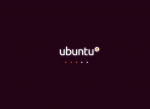 I don't really understand the need to make Linux operating systems more appealing to general crowd by using stuff like Plymouth to mimic other inferior operating systems behavior. The Linux way would be to try to explain general crowd that wasting effort on making boot splash screen doesn't bring increase in productivity. This is the reason why I disable Plymouth or any other boot splash software on all of my Linux PCs. I also like to force showing GRUB boot menu before boot in case I need easy access to recovery entries on GRUB boot menu. In this article I will show you how to disable Plymouth and force showing GRUB menu with 3 seconds timeout on Ubuntu Linux PC.
I don't really understand the need to make Linux operating systems more appealing to general crowd by using stuff like Plymouth to mimic other inferior operating systems behavior. The Linux way would be to try to explain general crowd that wasting effort on making boot splash screen doesn't bring increase in productivity. This is the reason why I disable Plymouth or any other boot splash software on all of my Linux PCs. I also like to force showing GRUB boot menu before boot in case I need easy access to recovery entries on GRUB boot menu. In this article I will show you how to disable Plymouth and force showing GRUB menu with 3 seconds timeout on Ubuntu Linux PC.
One of the ways to disable Plymouth is to uninstall it from your PC. In the modern Ubuntu OS this isn't really easy because of many features that have Plymouth as APT dependency. Because of that I will show you how to disable it by editing your GRUB settings.
First lets open GRUB configuration file with administrator privileges:
gksudo gedit /etc/default/grub |
We will also force displaying GRUB screen even if you don't have multiple operating systems on your PC and set GRUB display timeout to 3 seconds (skip this step if you want your GRUB screen hidden). Now find the line starting with GRUB_HIDDEN_TIMEOUT and make a comment out of it by placing # character at the beginning of this line. When you finish editing this line should look like this:
#GRUB_HIDDEN_TIMEOUT=0 |
Next we will set GRUB timeout to 3 seconds by editing GRUB_TIMEOUT=10 line like this:
GRUB_TIMEOUT=3 |
The last thing is to disable Plymouth splash screen and quiet boot because we want to be able to see all system messages instead of Plymouth splash screen. For this you must find GRUB_CMDLINE_LINUX_DEFAULT="quiet splash" line and change it into:
GRUB_CMDLINE_LINUX_DEFAULT="" |
Now you just need to update GRUB and initramfs configuration and you have disabled Plymouth on your Ubuntu installation. Here's code for doing that:
sudo update-grub2 sudo update-initramfs -u |
That's it. Now you can easily keep an eye on your Ubuntu Linux PC boot process. Cheers!
 DevGenii
DevGenii
Thank you!
Use Debian 🙂
thank you very much for this post…..